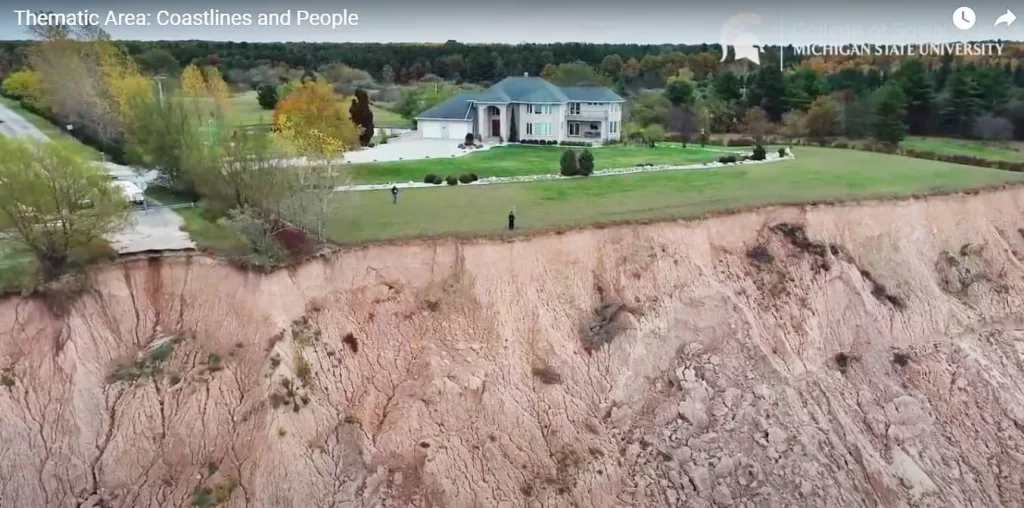While sandy beaches along Great Lakes shorelines are wider this summer, Michigan State University Researchers caution that more erosion challenges could be coming.
MSU experts warn that while Great Lakes water levels are down, “the threat is far from over.”
MSU geographers are currently studying how to help coastal communities, while calling on citizen scientists around the region in a new, first of its kind, volunteer program.
MSU researchers studying the interplay between water levels and erosion say that while some sandy beaches will be wider this year, due to erosion, Great Lakes coastlines will not look the same as they did a decade ago.
Ethan Theuerkauf, an Assistant Professor in the Department of Geography, Environment, and Spatial Sciences in the College of Social Science at MSU, says, “Right now, no one really knows if that sand is just sitting out in the lake waiting to come back to the beaches and dunes as lake levels fall, or if it’s been lost from the system into deep water.”
Theuerkauf adds, “Our research indicates erosion rates jumped significantly due to how quickly the lake levels rose as opposed to just how high they rose. Given that climate change is likely to increase the variability in lake levels moving forward, we anticipate that we will see sustained habitat loss, especially without intervention.”
To help, MSU researchers are now enlisting the help of drone-flying citizen scientists in the communities of Chikaming, South Haven, Manistee, Marquette, Manistique and Iosco to better understand how and why coastal landscapes change across time. You can learn more on that at this link: https://socialscience.msu.edu/research/thematic/coastlines/research-areas/ic-cream.html
Under a grant from the National Science Foundation Coastlines and People program, the team is piloting a citizen science program to equip and train volunteers, some of whom are impacted by coastal erosion, to fly drones and use other geospatial technologies to assist in monitoring and collecting data to better understand coastal change, especially changes brought about by storms.
Elizabeth Mack, an Associate Professor in Economic Geography at MSU who works with coastal scientists like Theuerkauf, says, “Because these sorts of changes can present major challenges for people living and working along our coastlines, we’re working on a variety of projects to better equip citizens and communities with the information and tools they need to address these challenges.”
Mack and Theuerkauf are also collaborating with Erin Bunting, an Assistant Professor of Geography and the Director of Remote Sensing & Geographic Information Systems (RS&GIS), the University’s unit providing geospatial technology services. Bunting says, “It’s really exciting to see how concerned citizens are stepping up to help us expand our monitoring ability and capacity for data collection and observation.”
The photo accompanying this story on Moody on the Market is a screen capture from a video provided by Ethan Theuerkauf from Michigan State University.






